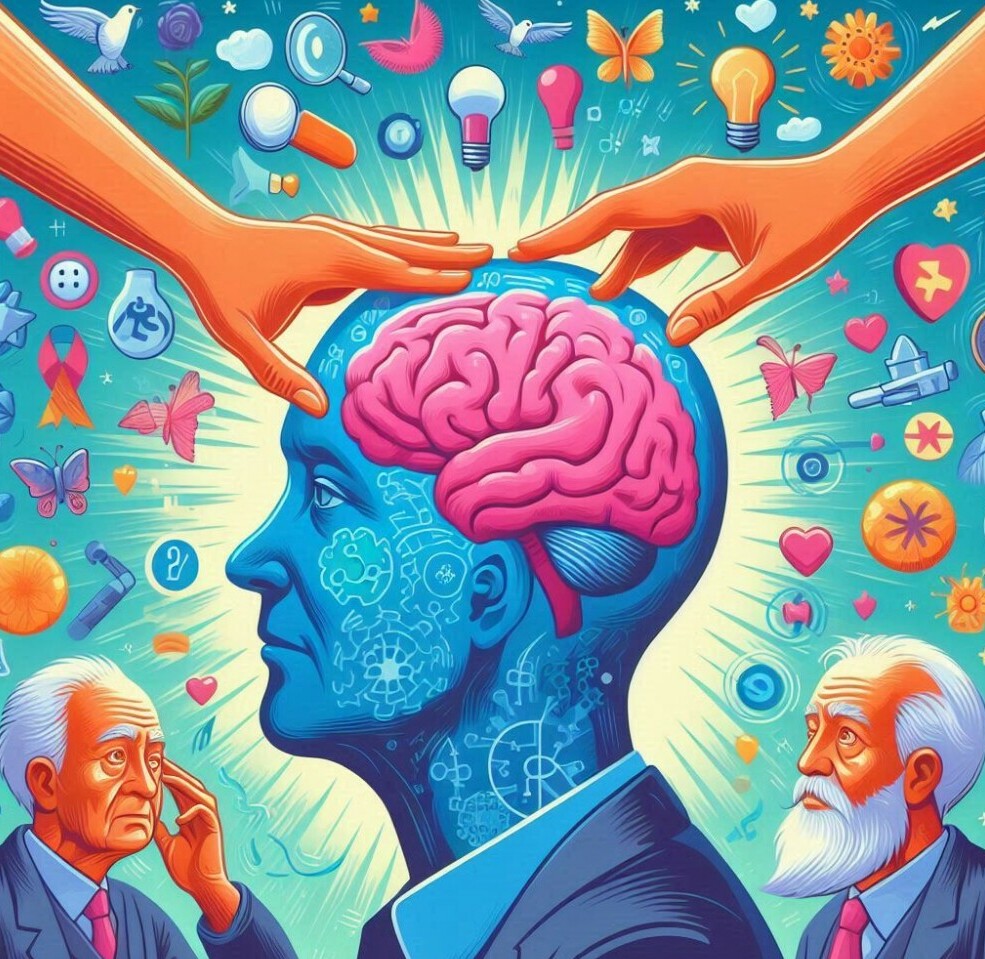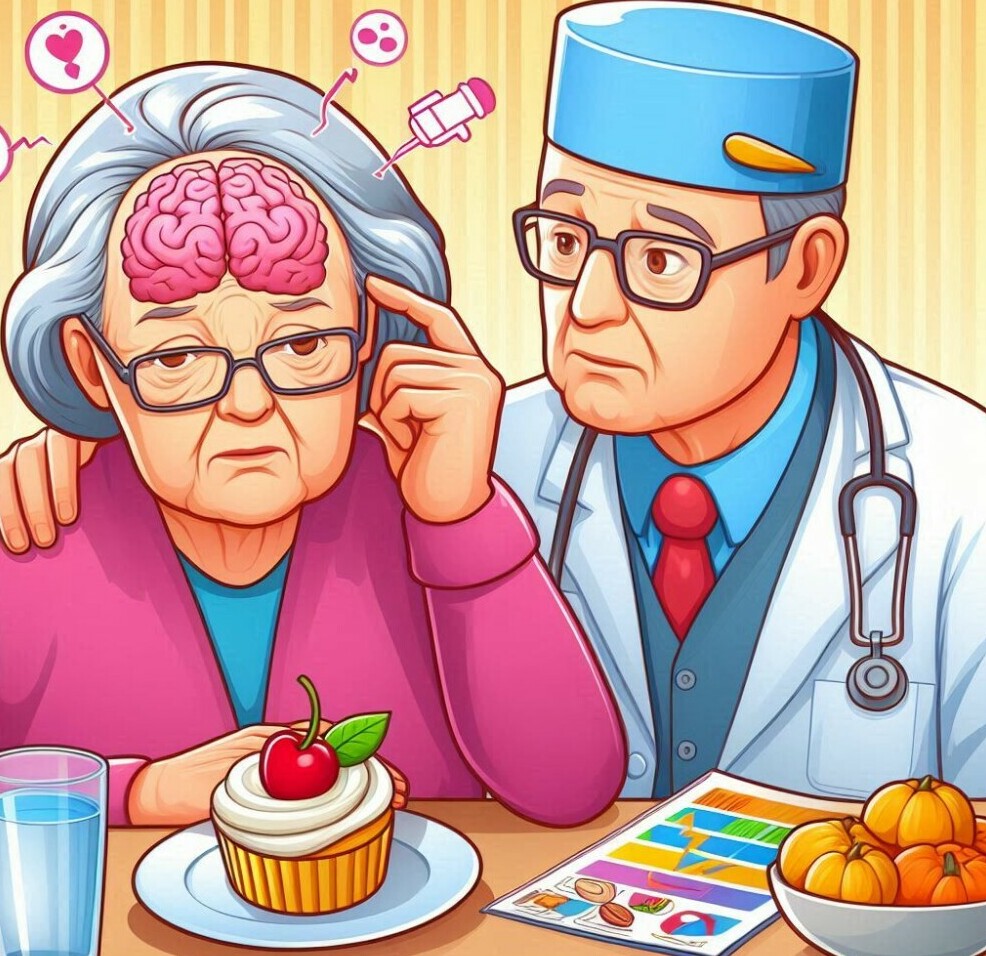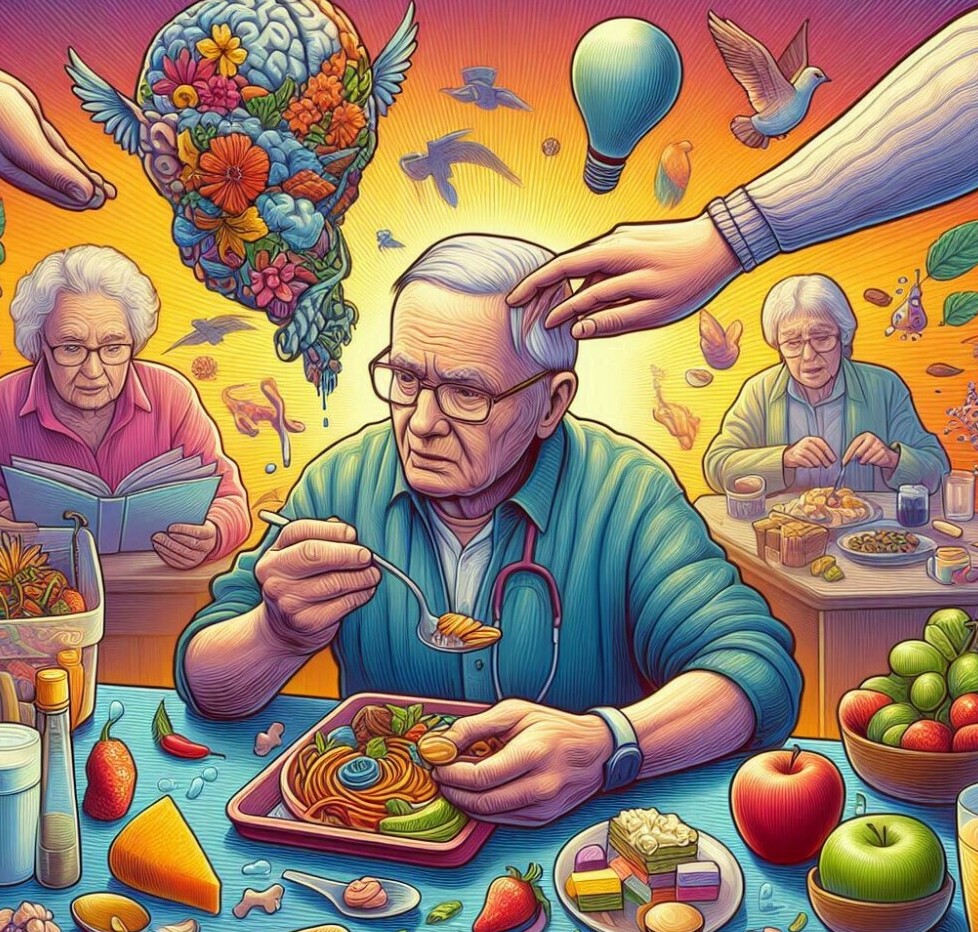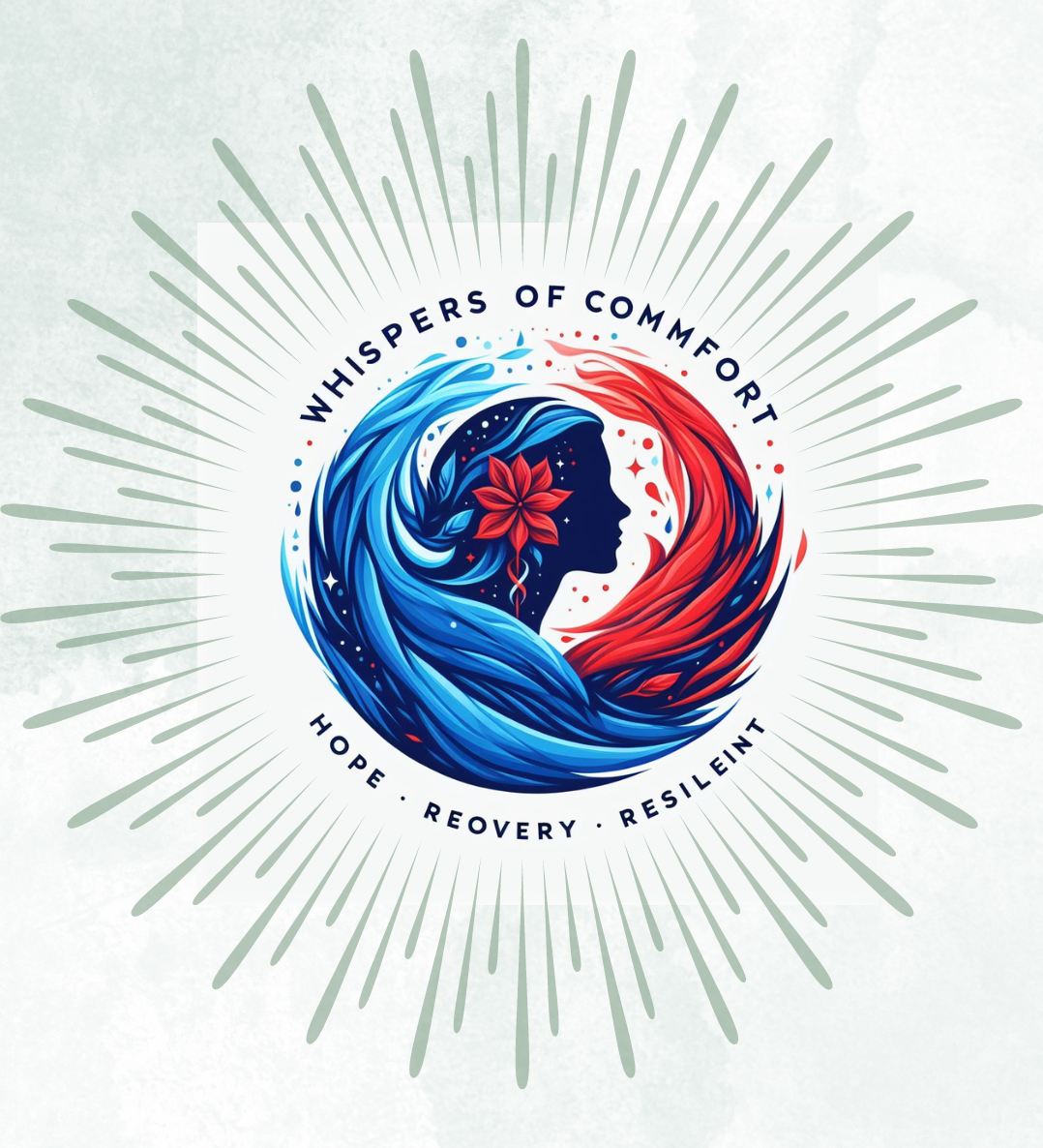
Alzheimer’s disease, a progressive neurodegenerative disorder, is the most common cause of dementia among older adults. The disease is driven by a complex interplay of genetic and environmental factors and manifests through a spectrum of symptoms that severely impact an individual’s quality of life.
You’re probably here because Alzheimer’s disease has touched your life or spiked your curiosity. That’s going to include learning what Alzheimer’s is: a relentless neurological disorder that methodically strips away memory, cognitive function, and the ability to carry out the simplest tasks. It’s not just a disease of forgetfulness; it’s a theft of identity.
Let’s put this into perspective. Millions of people worldwide are living with Alzheimer’s, affecting not only those diagnosed but also their families, friends, and communities. Understanding the magnitude of Alzheimer’s underscores the need for compassion and support as we navigate through this together.
In my opinion, grasping the basics of Alzheimer’s disease equips us to address it with the dignity and seriousness it warrants. It demands a human-centered approach, balancing the clinical aspects with an emotional touch. This isn’t just about statistics; it’s also about people’s stories and struggles.
Now, you might be wondering what causes Alzheimer’s. Good question. Up next, we’ll look at the deep roots of this disease, exploring genetic, lifestyle, and environmental elements. It’s a complex mix, and in my experience, unfolding this puzzle is essential for anyone looking to understand or confront Alzheimer’s.
Tracing the Causes: The Roots of Alzheimer’s Disease
You’re going to find out about what goes on behind the scenes with Alzheimer’s—what brings about this condition. I’m talking about the mechanics of it, the nuts and bolts. It’s not just about bad luck; there are specific factors at play.
Let’s kick things off with genetics. If your family tree has Alzheimer’s hanging from its branches, your odds might be slightly tilted. Researchers highlight genes like APOE-e4 as culprits. But don’t worry too much about genes; they’re not the whole story.
What about the air you breathe, the food you eat, and the way you live? Yes, environmental and lifestyle choices, such as physical activity levels and diet, have seats at the table too. The brain loves a good workout and nutritious meals, and giving it just that might keep Alzheimer’s at bay.
And then there’s the case of other health issues throwing a spanner in the works. Conditions like heart disease and diabetes can shake hands with Alzheimer’s, making matters worse. Managing these is crucial, so they don’t push open the door for Alzheimer’s to enter.
But here’s the thing: knowing these causes is powerful. It arms you with knowledge. And with knowledge comes the power to take action, make informed decisions, and understand potential risks.
Recognizing the Symptoms: Signs of Alzheimer’s Disease

Spotting the early signs of Alzheimer’s can be challenging, but it’s crucial for early intervention. Symptoms often start subtly and can be mistakenly dismissed as ‘normal aging’. I’m going to help you understand what to look out for.
Memory lapses are often the first indicators that raise concern. You’re going to find out about more than just forgetting names or misplacing items. It might involve repeating questions, struggles with familiar tasks, or having difficulty recalling recent events. Yet, this isn’t just about memory; changes in mood or behavior, such as withdrawal from social activities, can also signal the onset.
As Alzheimer’s progresses, symptoms become more pronounced. Communication becomes a hurdle, with finding the right words turning into a common struggle. Spatial awareness issues can emerge, making driving or navigating familiar places daunting. There’s also a noticeable difficulty in making decisions and exercising judgment.
Differentiating between typical aspects of aging and Alzheimer’s is key. Forgetfulness can be a normal part of getting older, but when it interferes with everyday life, it’s time to consult a healthcare professional. I’ll guide you to not just recognize these symptoms but also to understand the implication of each one.
Living with Alzheimer’s: Coping Strategies and Support

I’m going to start by acknowledging something crucial: coming to terms with an Alzheimer’s diagnosis can be immensely challenging for both the individual and their loved ones. It’s a condition that nudges everyone involved towards a journey of continuous adaptation and learning. That’s going to include developing new ways to communicate, altering the living space for safety, and finding the right support.
You’re going to find out about various therapeutic interventions that could make a positive impact. Occupational therapy, for instance, assists individuals in retaining the skills needed for daily activities. Medications may help manage some behavioral symptoms, while structured activities and routines can offer comfort and familiarity.
If you want to extend your support network beyond immediate family, remember that local and online communities can be lifelines. Sharing experiences with others in similar situations can provide not just practical advice but also emotional solace.
Don’t worry too much about getting everything perfect. It’s okay to learn as you go. You can always adjust your approach down the road as you discover what works best for you and your family. Choose something that resonates with you and your capacity to provide care.
In my opinion, it’s important to underscore the role of self-care for caregivers. Providing support to someone with Alzheimer’s is often a full-time commitment, and it’s easy to neglect your own health in the process. Ensure you’re taking breaks, seeking respite care when needed, and maintaining social connections.
Finally, a word of encouragement: Your journey with Alzheimer’s might be marked by days that feel more uphill than others. That’s the strategy I like to leverage—the realization that every step forward, no matter how small, is a victory. Your first attempt doesn’t need to be your last, and just don’t focus too much on perfection.
While research continues to unravel the mysteries of Alzheimer’s, raising awareness and fostering supportive environments remain essential in addressing the challenges faced by those living with the condition and their caregivers. Through continued efforts in research, education, and compassionate care, we move closer to mitigating the impact of this profound disease.
Kindly share your experiences and comments below.
Simplified. Turn YOUR Passion, Hobby or Interest into YOUR Success Story! Join Wealthy Affiliate today: https://www.
**Here’s a little transparency: Our website contains affiliate links. We may receive a small commission if you click and make a purchase. Don’t worry, as there’s no extra cost to you. It’s a simple way to support our mission of bringing you quality content.
Follow me on social media!

This article on Alzheimer’s disease really hit home for me. It’s so important to understand the depth of its impact and the various factors that contribute to its onset. The discussion on genetics, lifestyle choices, and early symptoms was enlightening. One question that often crosses my mind is how advancements in AI and machine learning could potentially revolutionize early diagnosis or personalized treatment plans for Alzheimer’s patients. Integrating these technologies could offer deeper insights into disease progression and improve quality of life. What do you think about the role of AI in shaping the future of Alzheimer’s care?
Hello Rae,
I appreciate your comments and contributions to the article. I’m glad to know that you found the article helpful and insightful.
The point you raised about the potential of AI and Machine learning in diagnosing and treatment of Alzheimer’s disease is valid. I agree with your view because Al could indeed play a crucial role in early detection by identifying subtle patterns in medical data that might be missed by human eyes, thereby catching the disease at an early and manageable stage.
Furthermore, AI could personalise optimal treatment plans for individual patients, which can lead to a more favourable outcome and an improved life quality for the patient.
In my opinion, the integration and deployment of technology and AI offer hope for more effective and efficient management of Alzheimer’s disease, as this is the kind of outcome we are all hoping for, which gives a preview into the future.
If I may ask, what specific AI applications are you most interested in seeing developed?
Thank you for your valuable insights.
Regards,
Makinde
Hello Makinde,
This is a powerful and comprehensive post on Alzheimer’s disease. Thank you for breaking down the causes and symptoms so clearly. It is comforting to know that understanding the genetic, environmental and lifestyle factors can help us take preventive steps.
The section on recognising symptoms is particularly helpful for distinguishing between normal aging and potential signs of Alzheimer’s. The advice on coping strategies and support is invaluable, especially the reminder for caregivers to take care of themselves.
This article is a great resource for anyone impacted by Alzheimer’s. Thank you for sharing. I will share it with my friends.
Hello Starlight,
I appreciate your thoughtfulness and contributions to the article.
Understanding the various factors and recognizing symptoms can make a big difference and ensure a better health outcome for individuals. I’m glad that you found the advice on coping strategies and caregiver self-care impactful and helpful.
Supporting individuals with Alzheimer’s and spreading awareness about it would be great and wonderful.
Thank you for your kind words and sharing the article with your friends.
Regards,
Makinde